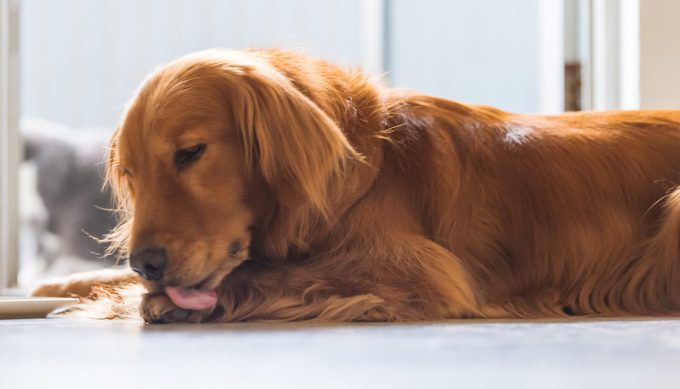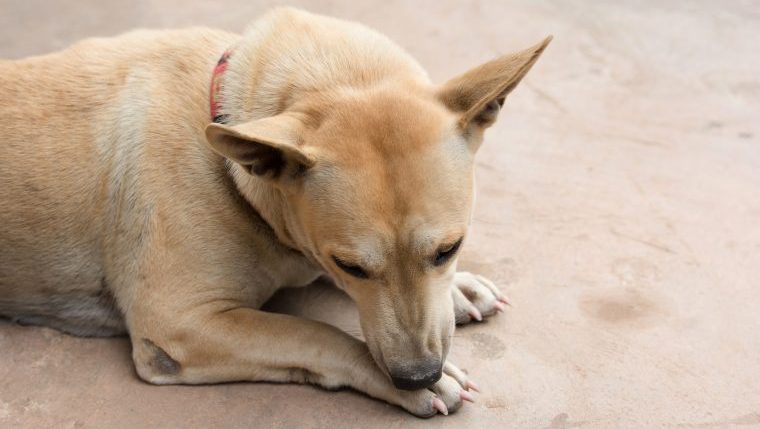
You may have noticed your dog licking their paws after a trip outside or while relaxing in their bed. But, why do dogs lick their paws? There are a variety of behavioral and medical reasons why you might spot this behavior. Learn more about why dogs lick their paws, signs to watch out for, and when to see your vet.
Normal reasons why dogs lick their paws
Dogs lick their paws normally for many reasons. If their feet are dirty from a trip outside or a crumbly treat, they may lick them to clean that excess dirt off. In addition, dogs sweat through their paw pads and may lick them to help cool off on a particularly hot day. Paw licking can also be a self-soothing behavior for an anxious or bored dog. Self-grooming can help your dog relax after a stressful situation and may help them settle down after a play session outdoors.
Medical concerns to watch out for
Paw licking can also be due to excessive stress, injury, or an underlying illness. Signs of something wrong can include excessive, obsessive licking of a particular paw or between the toes, visible injury on the affected paw, or redness and pain. Allergies, infections, injuries, pain, and more can all cause an increase in licking.
In addition, you may notice some signs specific to what is causing the change in licking behavior. Allergic reactions can cause the foot and toes to become red, swollen, and itchy. Infections can give the foot a strange odor, such as a “corn chip” smell in the case of yeast. An infected foot may also be swollen, painful, and ooze discolored debris.
Injuries can cause the foot to appear swollen. Visible wounds may also be present, such as cuts or scrapes between the toes or on the foot pad along with visible blood. A painful foot may cause your dog to yelp when touched or refuse to put weight on the affected limb.
What to do if your dog’s paw licking seems abnormal
There are a few things you can do if you notice your dog licking their paws more often than usual. The first is to schedule an appointment with your veterinarian. Along with a complete history, they can examine the paw for any visible signs of injury, infection, or underlying conditions. From there, your vet can recommend treatments such as pain meds, medicated creams, antibiotics, and more.
If there is no medical reason behind your dog’s excessive paw licking, a visit with a trainer or behaviorist is a good next step. Together, they can work with you to identify any environmental stressors or behavioral issues that could be causing stress and anxiety. From there, training, behavior modification, and stress reduction techniques can be used. These can range from distraction to addressing more serious issues like separation anxiety.
It’s important to monitor your dog for any changes in their behavior and health. Luckily, excessive paw licking is an easy-to-treat condition. Now that you know why dogs lick their paws, be sure to check out our tips for taking care of your dog’s paws to help them stay healthy and happy!









